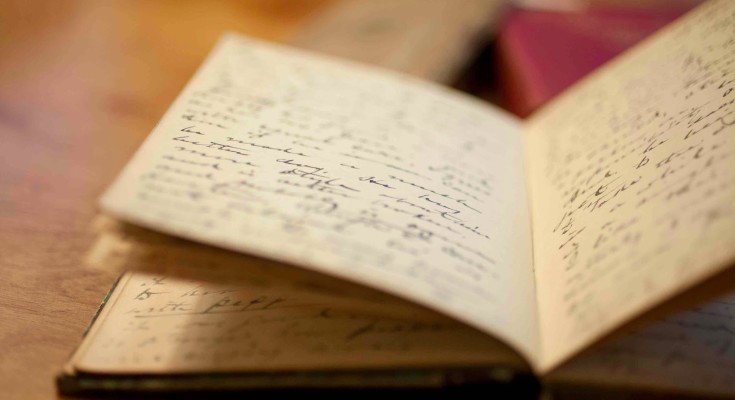This year, turn over a new leaf, take up a new hobby and start writing a diary. Lifestyle and Culture Editor, Bella Davis, offers some pointers on getting started.
The beginning of the year is often characterised by the setting of goals and resolutions, and the consequential fallout from the failure to achieve them. Often resolutions are near impossible, whilst laziness and lack of motivation often play a part to sabotage your efforts. I am someone who personally always falls into this trap, but one effort which bucked the trend was to keep a diary for the whole year, filled with both brief and detailed entries each day depending on how busy I was. Needless to say the habit stuck.
It is no secret that some of the most influential people in history have long kept detailed journals and diaries of their lives, which have served two purposes: a permanent record of posterity and an extremely helpful release for all life throws at you both positive and negative. I really believe that there is an art to keeping a diary and hopefully this article might inspire you to pick up your pen or start typing on a blank page. Here are a few pointers that might help you get started.
Firstly, try to establish why you want to keep a diary. It might just be your new challenge, but you may ultimately feel utterly compelled to continue writing. Personally, now I couldn’t imagine a day in which I don’t spend a little time writing for myself. Keeping a diary helps me make sense of the world and organise my thoughts which are often an overwhelming frenzy in my head. It doesn’t matter if you only spend five minutes writing but at least you get yourself into a rhythm, something near impossible at uni. It will also help to harness your creativity.
Where and when should you write your diary? It really doesn’t matter as long as you manage to find some time to actually put pen to paper. Not having time is an easy excuse. Make time. I tend to write about my day before bed, but obviously if I plan on going out then that isn’t going to happen when I can hear my beloved housemates encouraging the beginning of pre-drinks.
It is really important not to fear the blank page, remember you are writing for yourself. When I started writing a diary at 16 I think I was writing for someone else – I wrote the diary that I thought I should be writing. The one I wanted my mum or friends to find – do not fall into this trap.
You shouldn’t feel the need to make perfect entries. It isn’t necessary to edit entries but if you find yourself hating a sentence when reading back then just cross it out. You don’t have to read your entries back to yourself but I find that it can be quite therapeutic at times. Although I am not sure I would really want to read some of my first diaries. They are very depressing and full of teen angst about boys, or lack thereof, friends and the beginning of my mental health struggles. Don’t look back, keep writing and going forward.
What do you write about? It is very common to start writing a diary about one thing and over time your writing will most probably evolve. I started writing about my feelings, but I think it is some of the worst writing I have ever done. My old diaries were full of misery and obsessive thinking even though I had a very happy life. Now, I tend to write about things people have told me, opinions on TV, film, news and radio, memories and occasionally my feelings. I try to be more present in my life and observe and reflect more. Collect everything and anything that you feel is important. Some of my diaries have very little writing in and have more mementos and bits and bobs stuck in: a pressed flower from a holiday, a train or cinema ticket that was particularly good.
Be honest. When you write honestly and for yourself, with nobody else in mind, you feel great. It is a really rewarding experience, you just have to start.
Image: Dubeat.com

